
Randi Nygård 2020.
Installation
Sculpture
Mirrors, photo, wood
158 * 62 * 30,6 cm
Table is made by Hans Jacob Normann

Randi Nygård 2020. Installation.
Bodies are sensing, expressing and forming the world / Kroppar sansar, uttrykker og formar verda
Sculpture
Mirrors, photo, wood
158 * 62 * 30,6 cm
Table is made by Hans Jacob Normann
Language / Språk
HD-video (on the small screen), 00:57 min
Gestures, movements, postures, tone and beating of wings / Gestar, rørsler, haldningar, tonefall og vingesus.
HD-video (on the big screen), 02:11 min
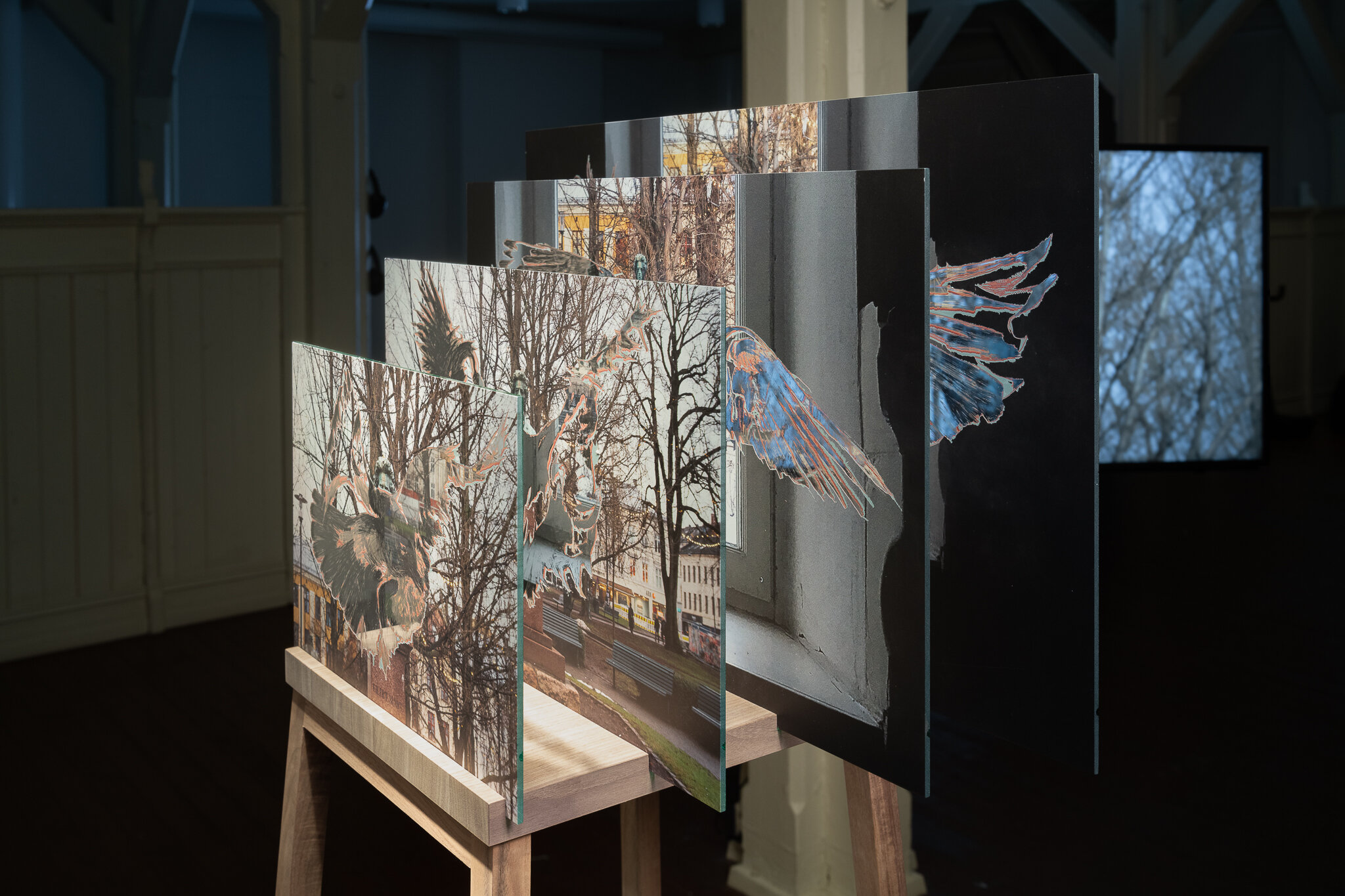
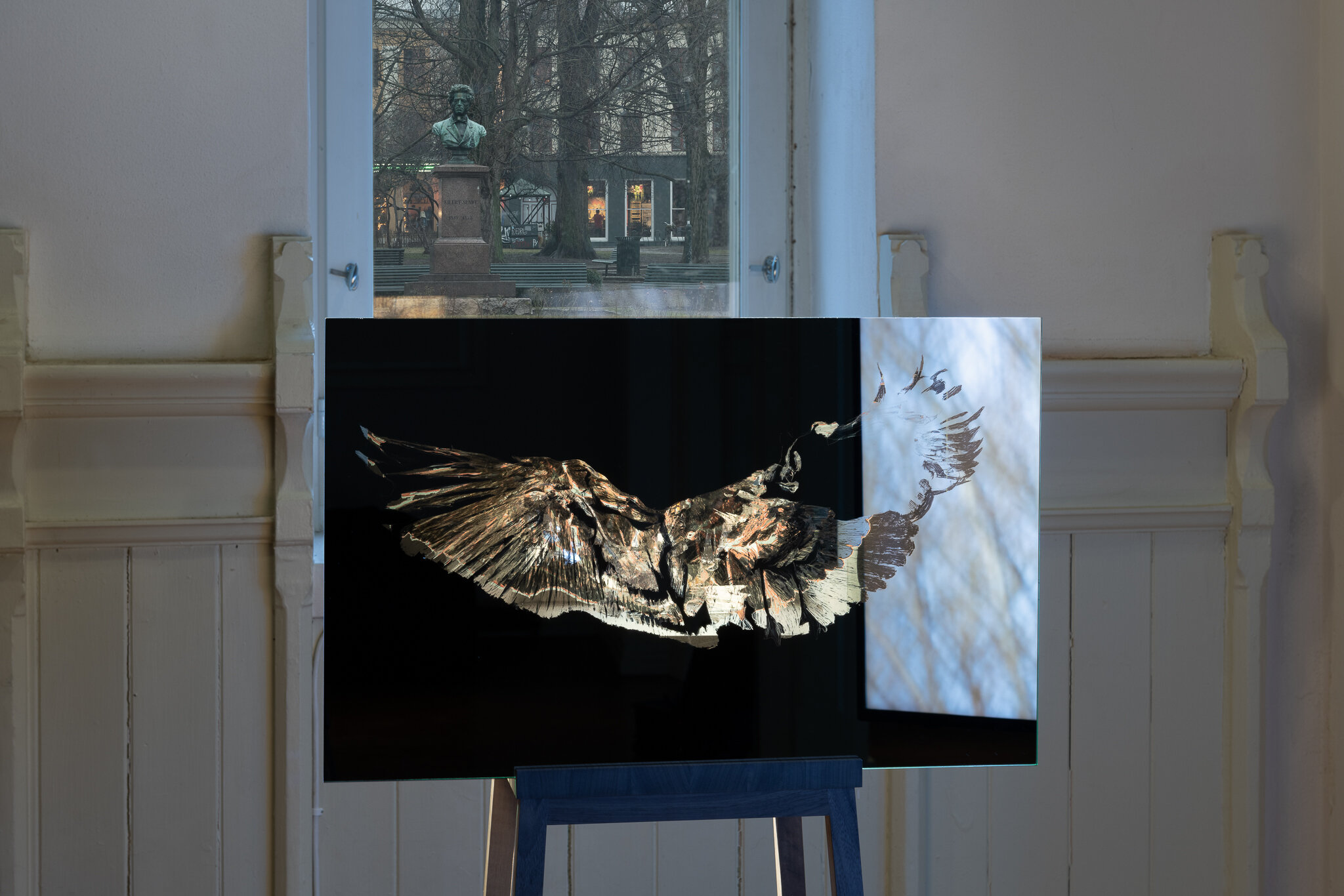
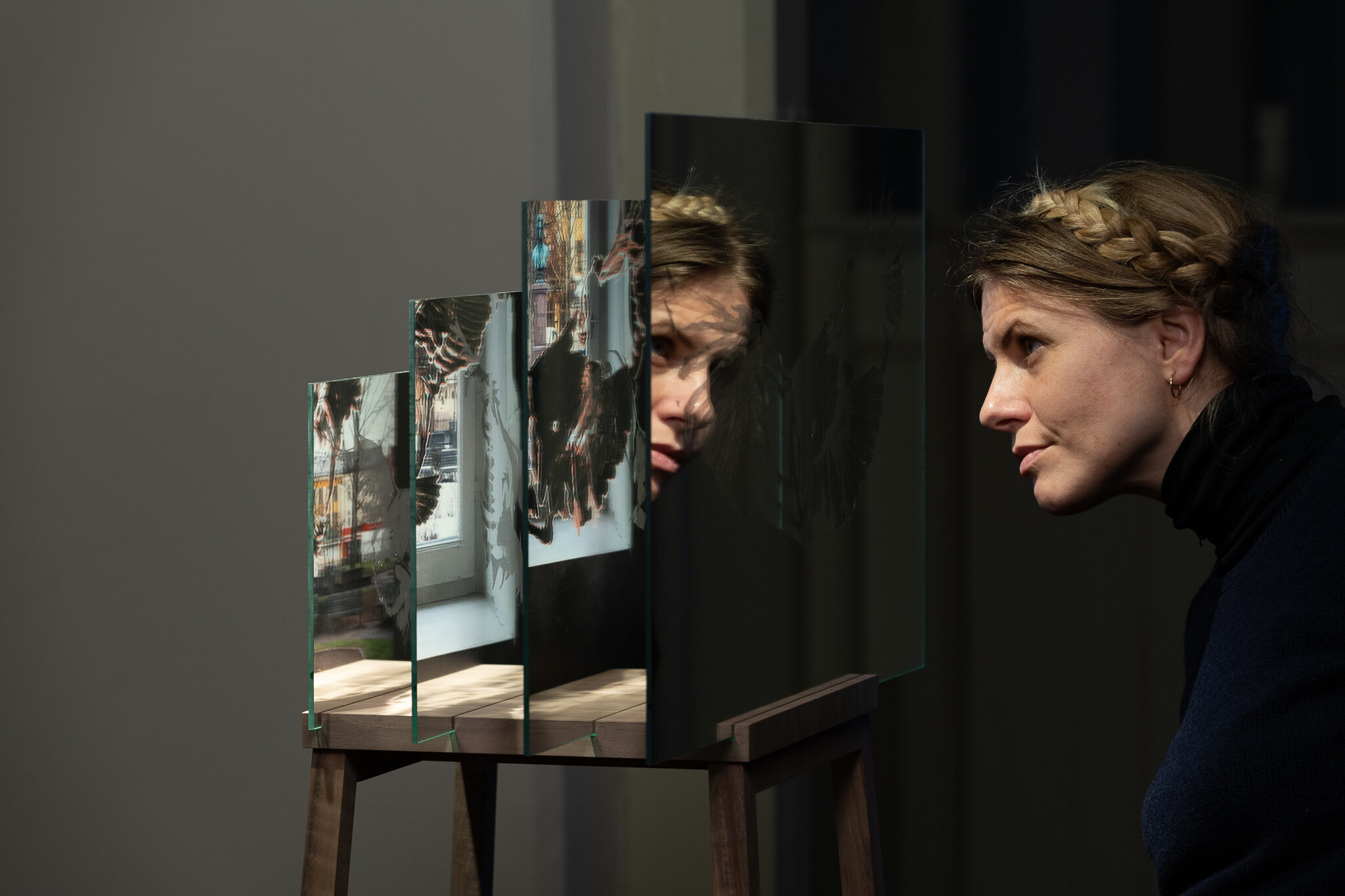
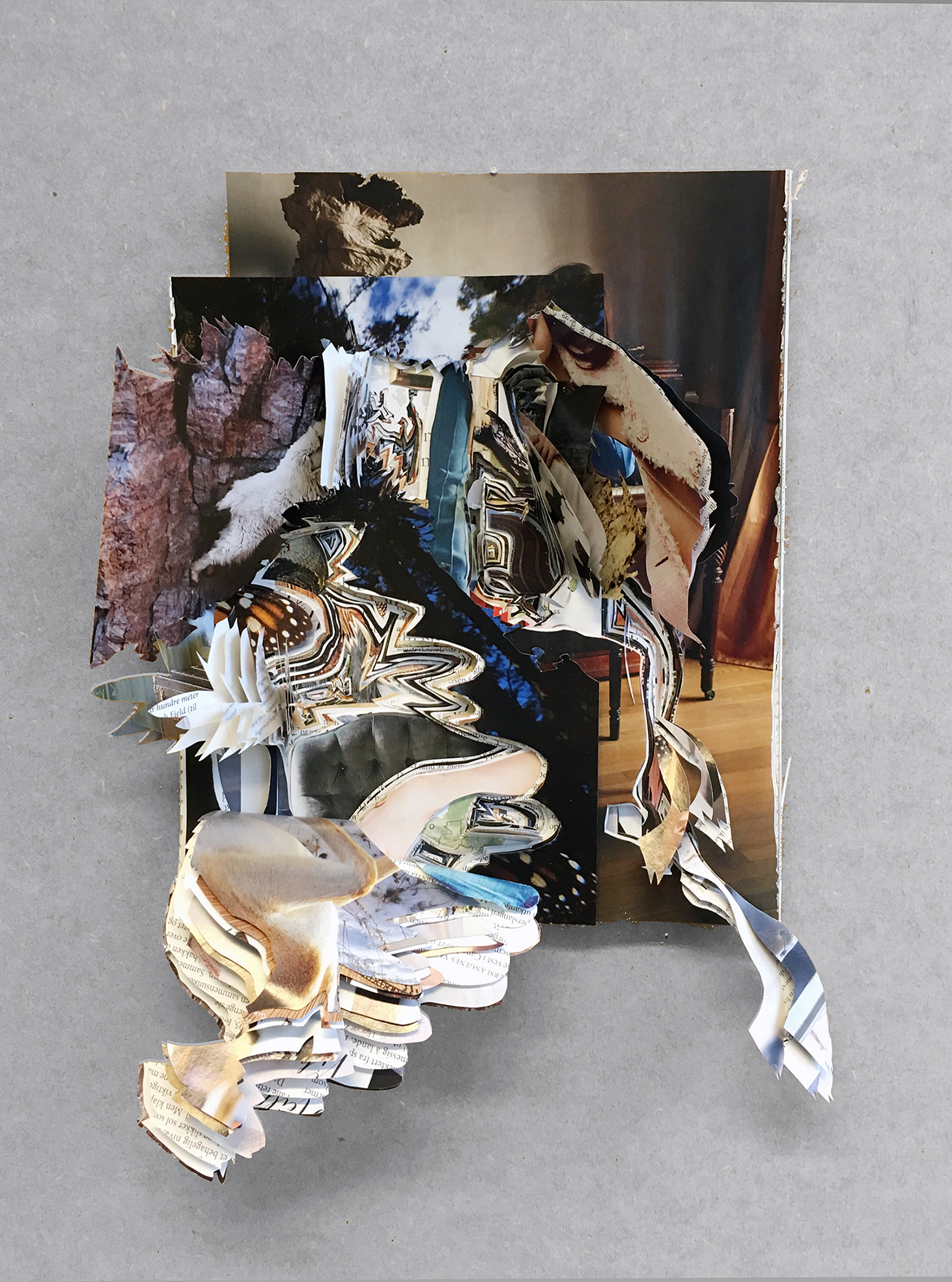
Randi Nygård 2018
Collage, magazines 47 x 35 x 15,5 cm
Photo: the artist
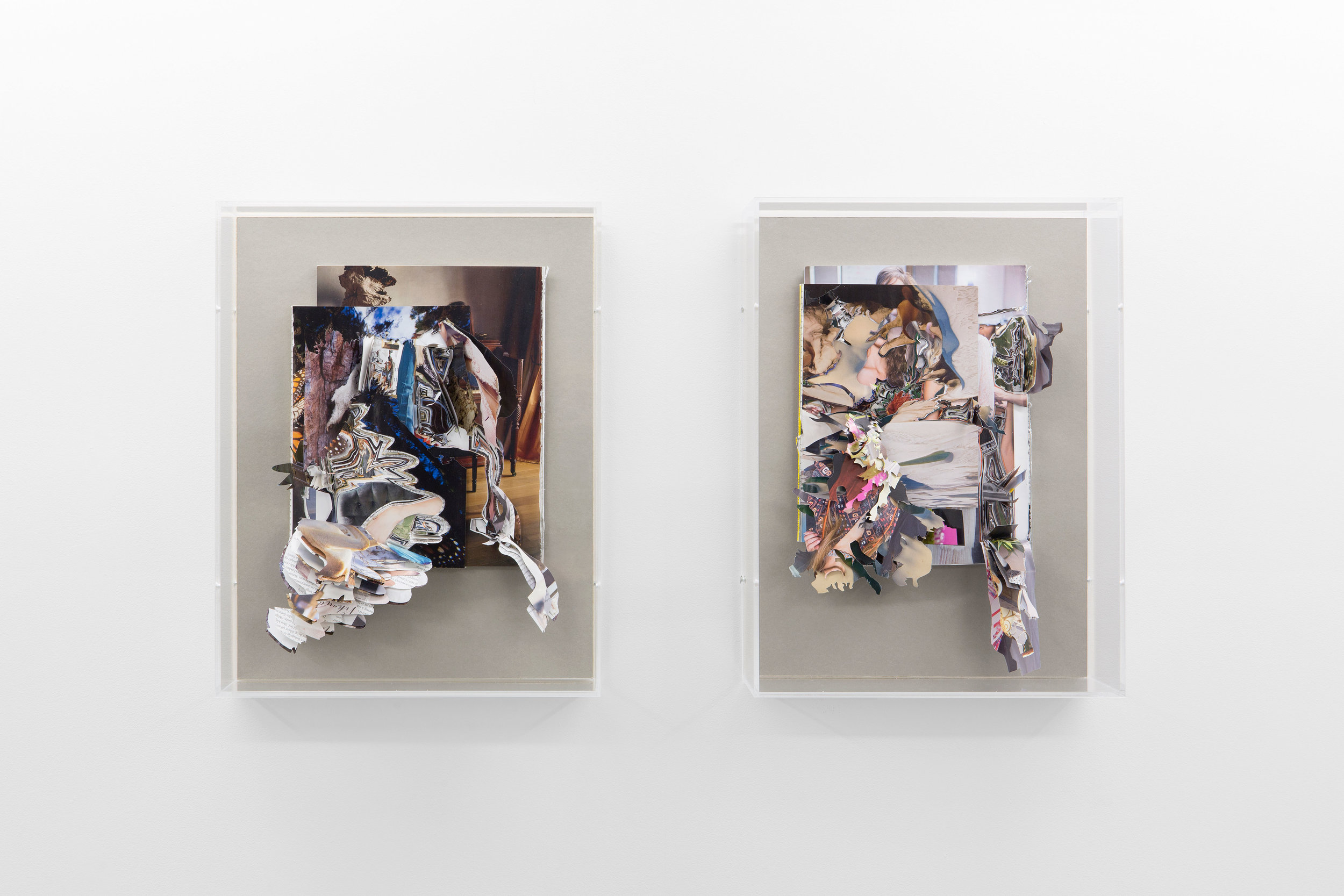
Randi Nygård 2018
Collage, magazines, 47 x 35 x 15,5 cm and 47 x 36,5 x 12 cm
Photo: Uli Holz
According to the dictionary, costume means dress and geography the study of the surface of the earth and its conditions. In Germanic languages, the word for dress is related to how much one can carry.
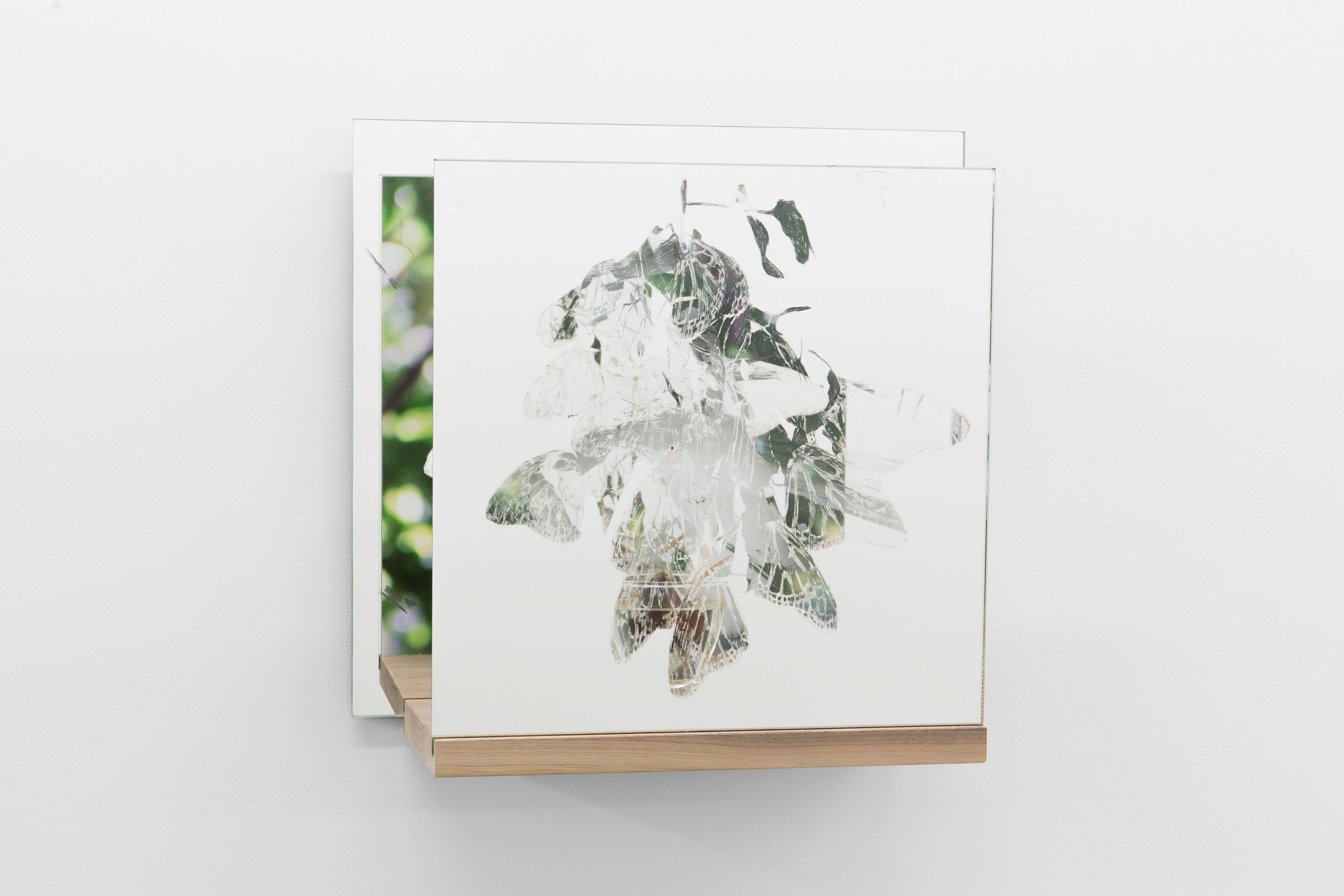
Randi Nygård 2019
Mirrors, photo, avocado stone, water, glas, wood 33 x 35 x 16 cm
Photo: Uli Holz
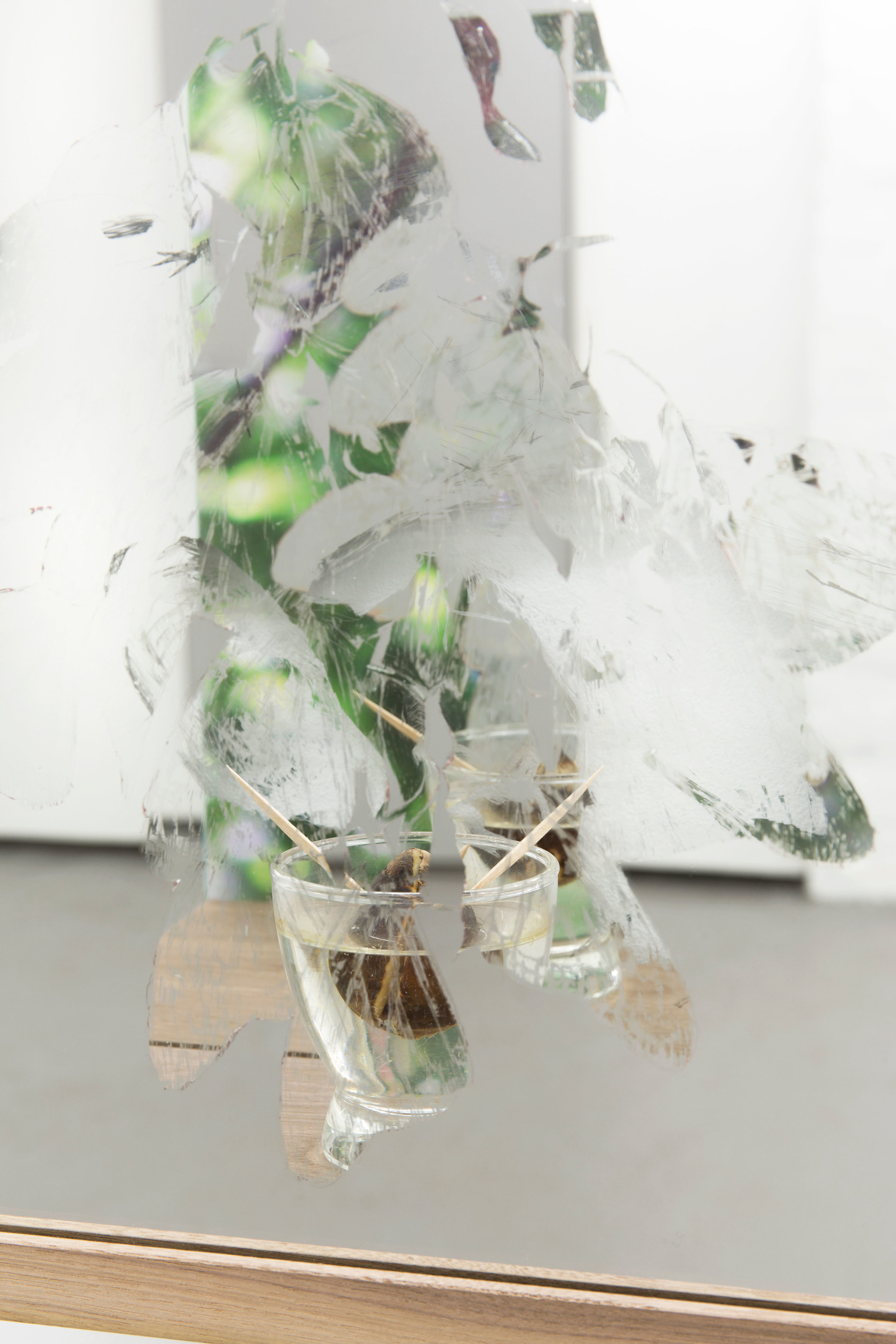
Randi Nygård 2019
Detail
Photo: Uli Holz

Randi Nygård 2019
Mirrors, photo, plant, wood, 42 x 23 x 27 cm
Foto: Uli Holz.
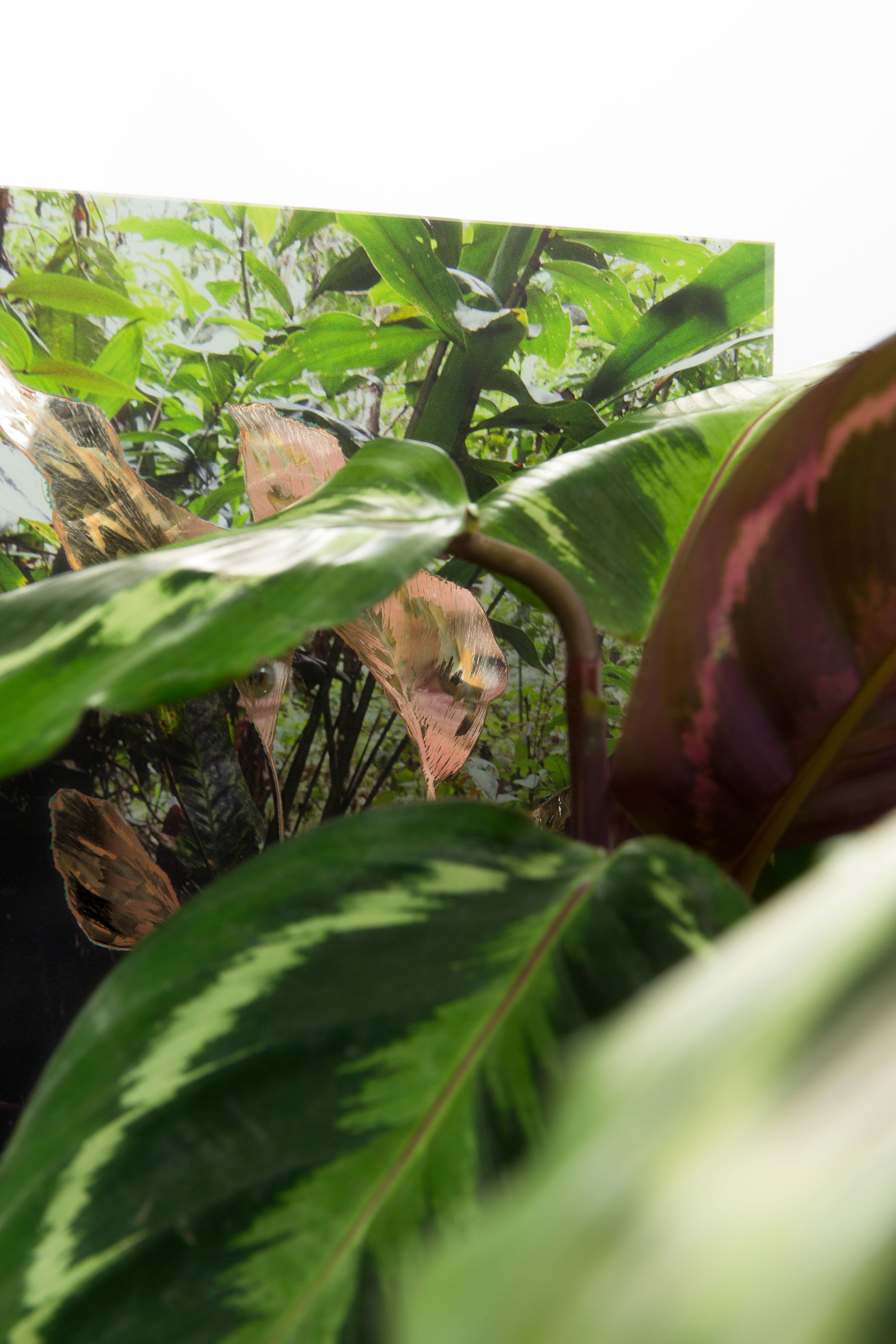
Randi Nygård 2019
Mirrors, photo, plant, wood, 42 x 23 x 27 cm
Foto: Uli Holz.
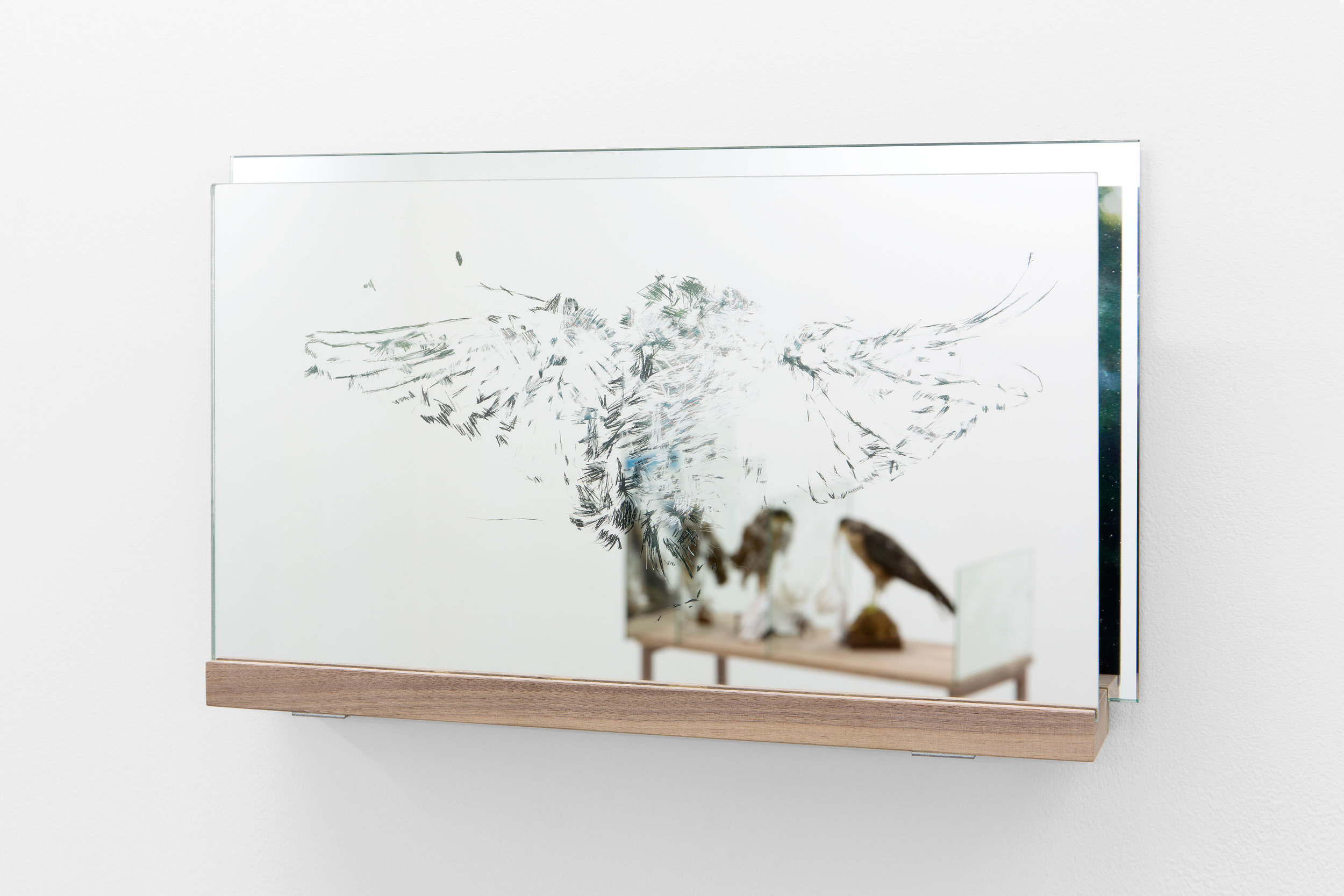
Randi Nygård 2019
Mirrors, photo, wood
22 x 38 x 6 cm
Photo: Uli Holz
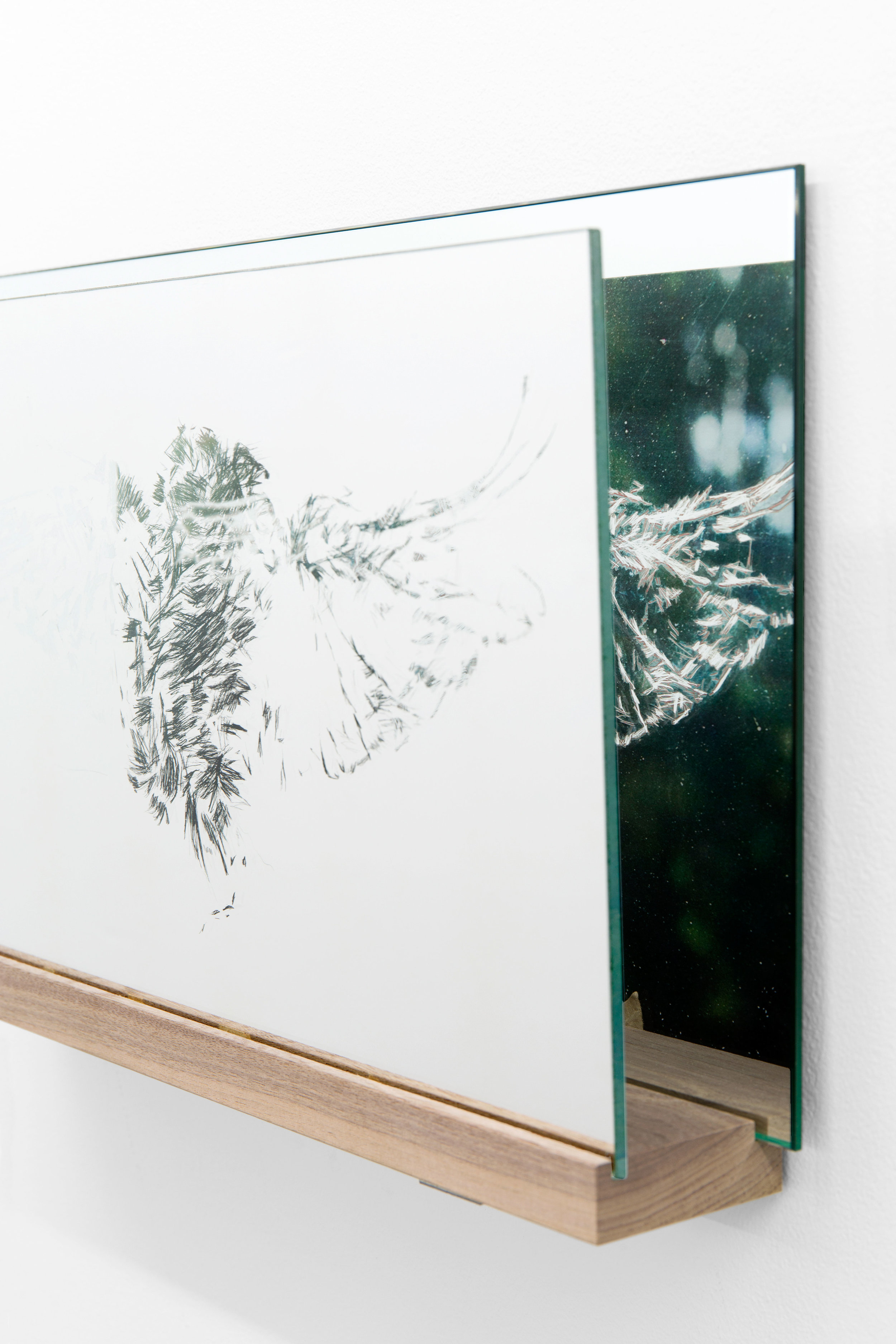
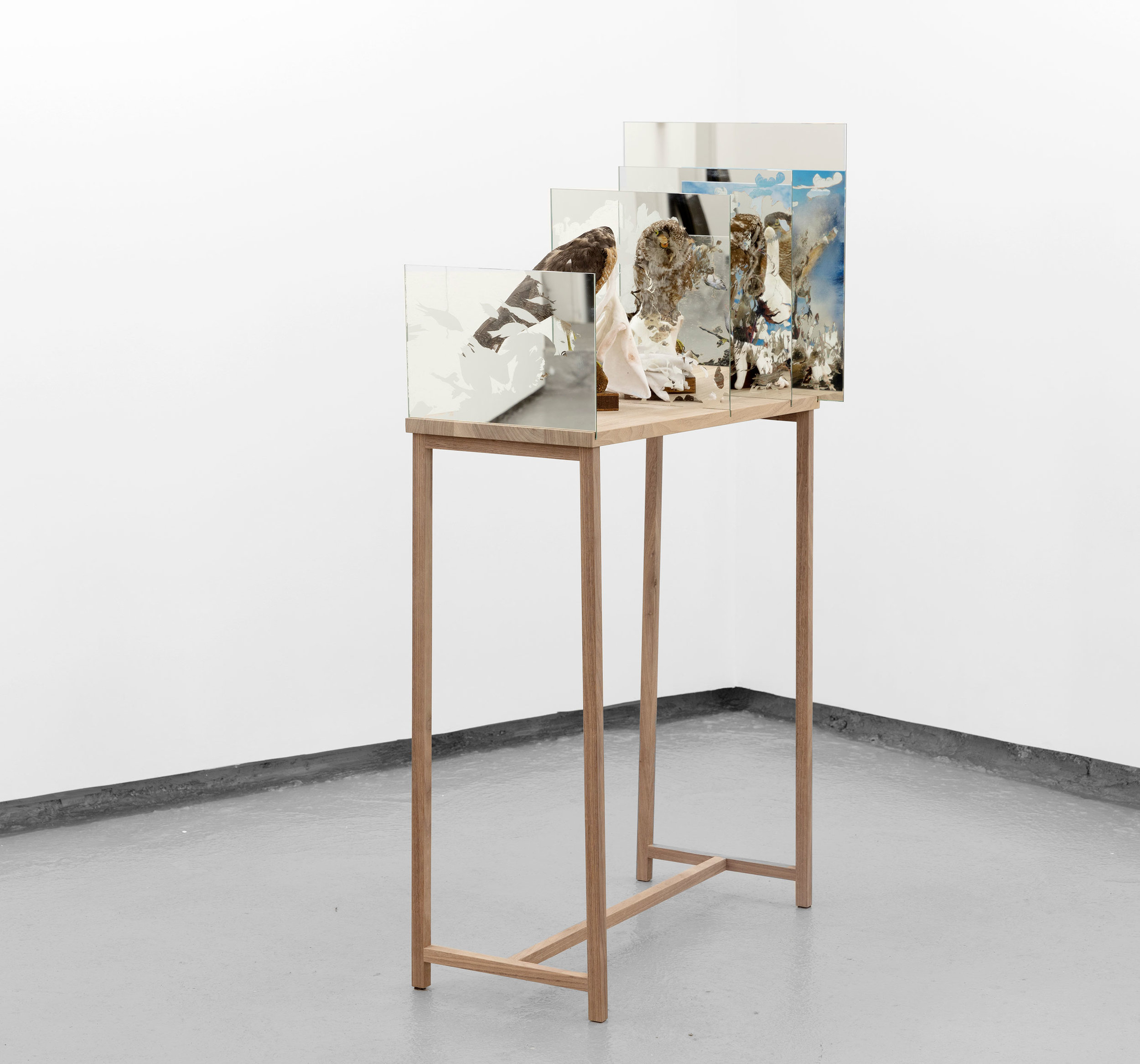
Randi Nygård 2019
Installation, mirrors, birds, photo, wood and cotton, 120 x 72 x 36,5 cm.
Photo: Christian Tunge.
In the work Sikt, sjikt, dikt (bomull, skyer, fugl, sjøsprøyt) (Sight, layer, poem (cotton, clouds, bird, ocean spray)) I have been inspired by how clouds are formed, cotton is grown and how birds can live gliding in the sky for months without landing. The birds eat different living organisms that float around in the air, some of which live their entire lives inside clouds. These organisms also contribute to the formation of clouds, clouds cannot be formed without small particles that water vapour can attach to. Where there is a lot of plankton in the ocean, a lot of clouds are formed. Where cotton is grown, the ocean is often polluted because of the chemicals sprayed on the cotton and transported into the ocean with water from the fields. The areas dry up and the fish die.
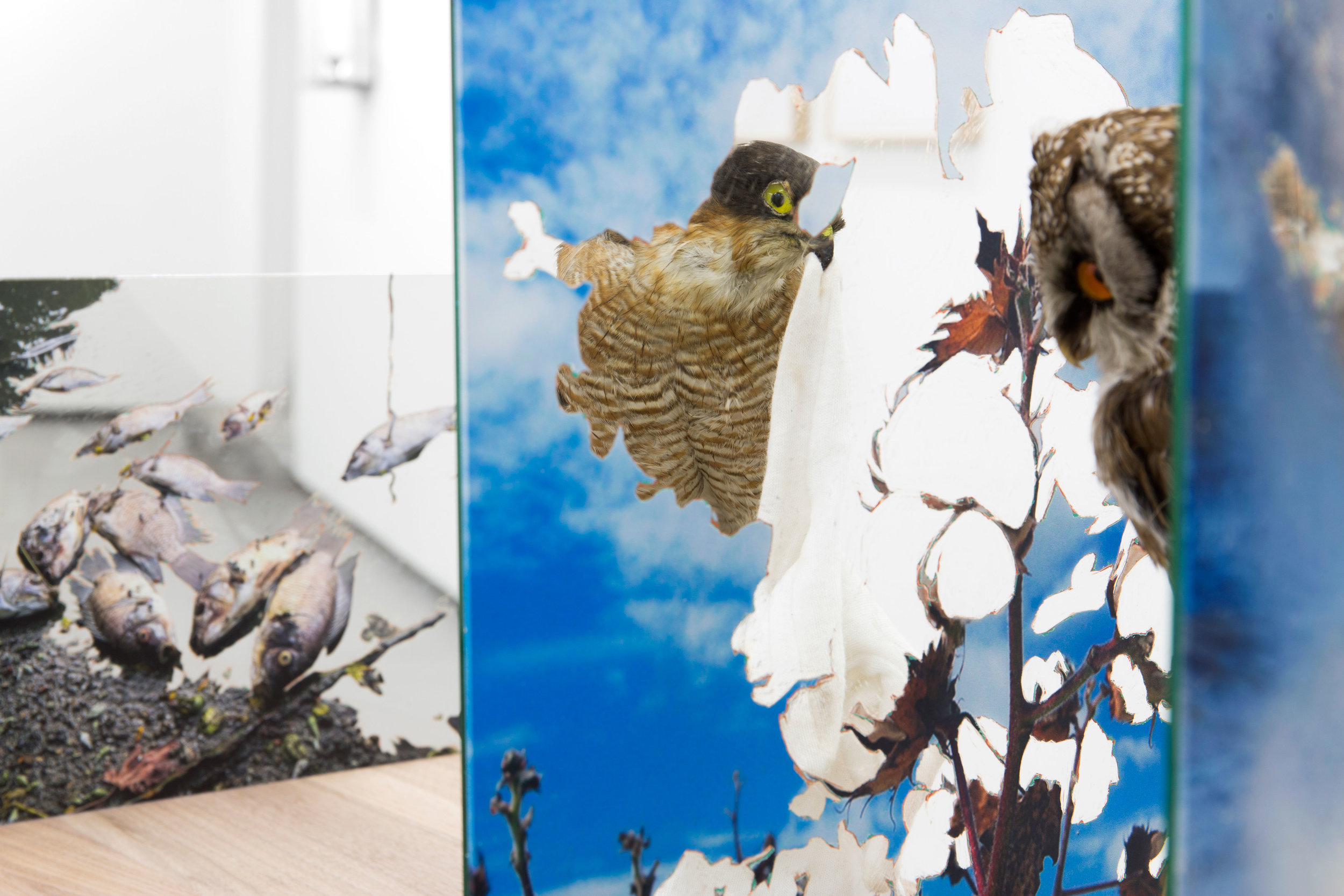
Randi Nygård 2019
Installation, mirrors, birds, photo, wood and cotton, 120 x 72 x 36,5 cm.
Photo: Uli Holz
In German, the words for face, history and poetry resemble each other: Gesicht, Geschichte, Gedicht. If one removes the prefix ‘ge-‘, one is left with sicht, schichte, dicht, in Norwegian: sikt (sight), sjikt (layer), and tett (dense). The word poem (Gedicht) relates to densification. The German philosopher Husserl wrote that the moment we human beings perceive is such a densification of impressions. It lasts long enough for things to seem interlinked and short enough for us to connect to what is happening in front of us. We see movements as continuous and not divided, even if we blink our eyes. One assumes that animals can perceive moments as both faster and slower than us.
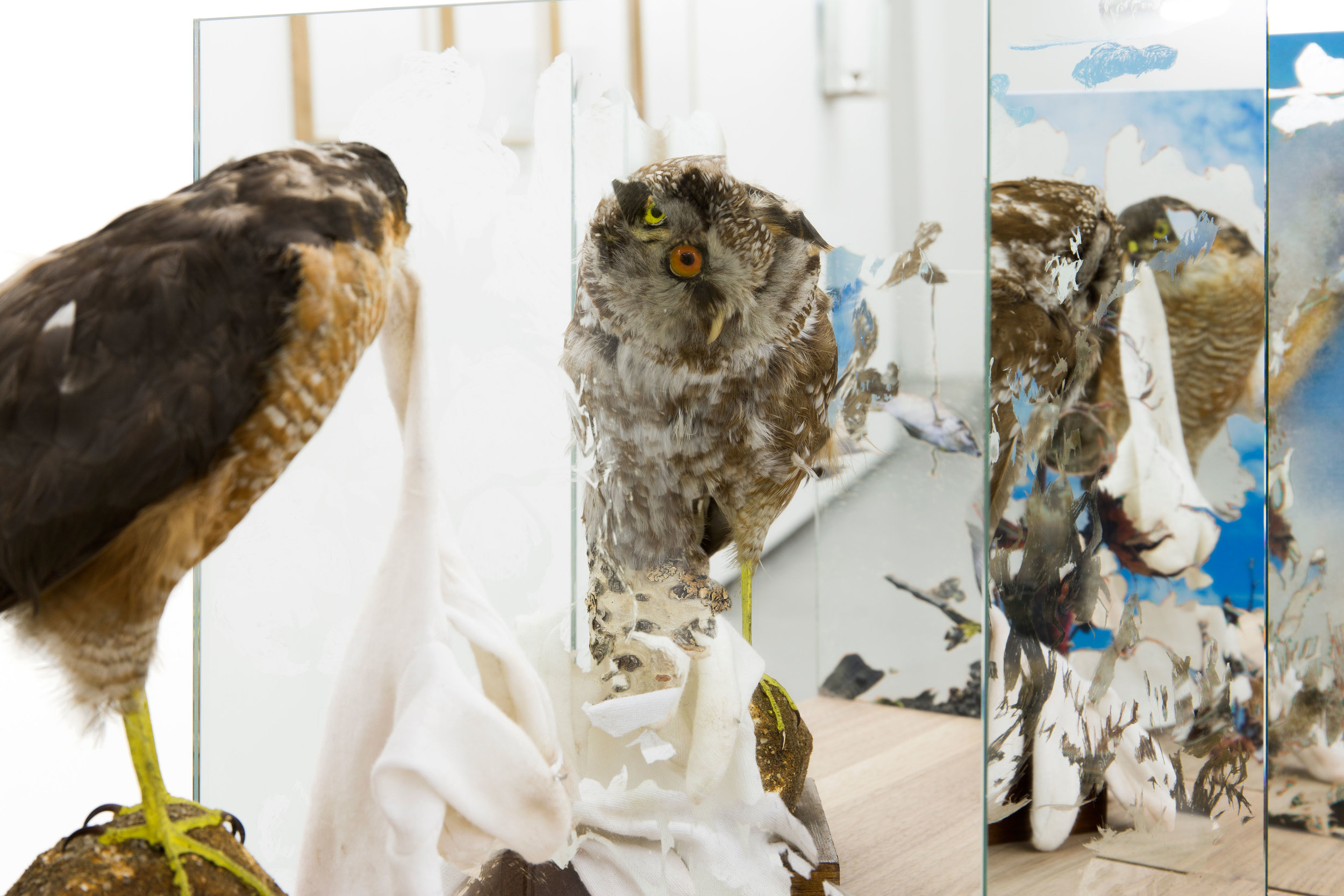
Randi Nygård 2019
Installation, mirrors, birds, photo, wood and cotton, 120 x 72 x 36,5 cm.
Photo: Uli Holz
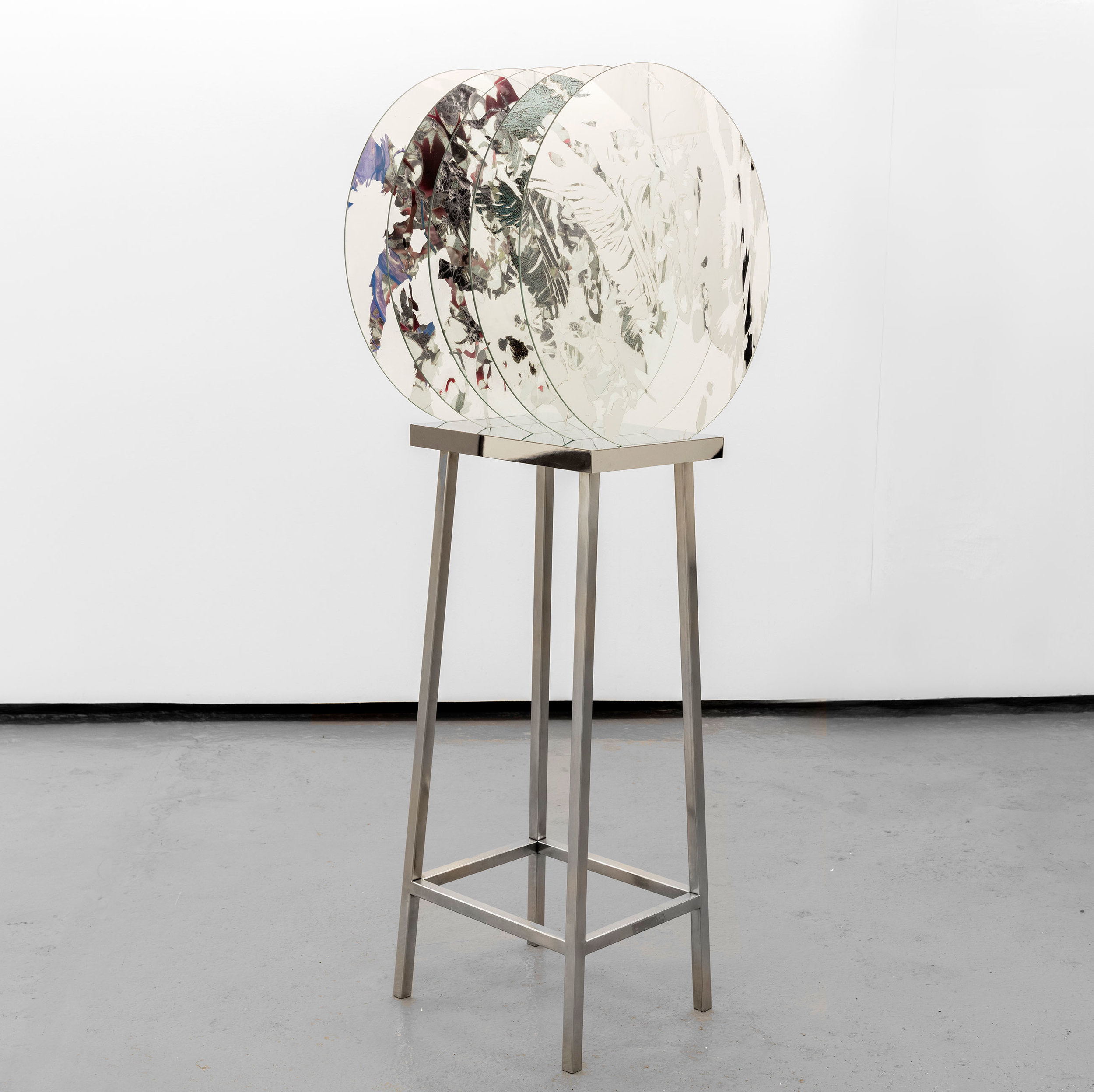
Randi Nygård 2013/ 2017
Mirrors, digital prints, steel 130 x 50 x 50 cm
Photo: Christian Tunge
The poetical can often not be rationally described and can only be experienced in meeting, in a densification. Is the way we perceive time fundamentally poetic? Some physicists are calculating whether time is something that comes into existence between things, and not a fundamental constant structure.
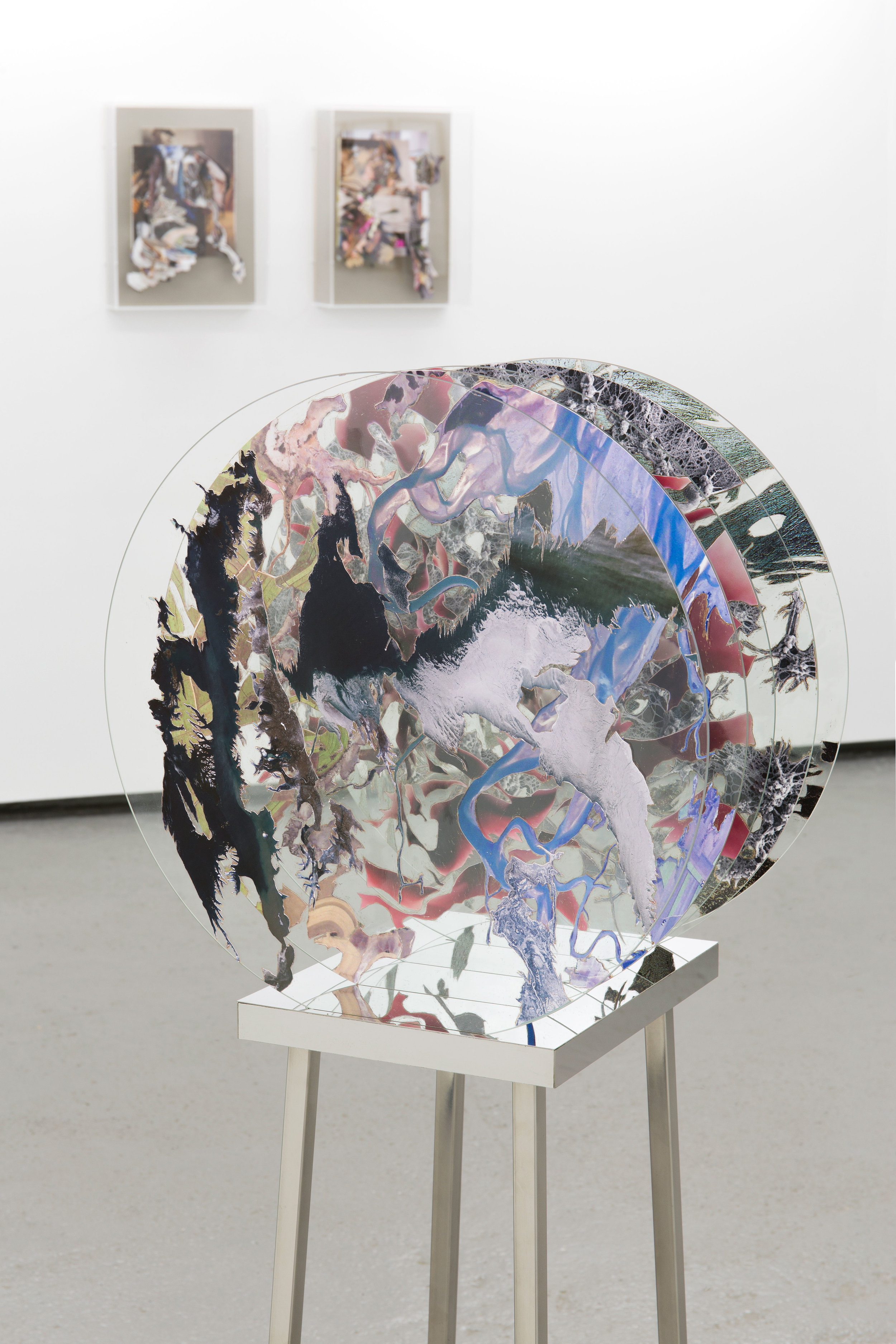
Randi Nygård 2013/2017
Mirrors, digital prints, steel 130 x 50 x 50 cm

Randi Nygård 2018
Frottage, pastel on paper
64,5 x 47 cm
Photo: Christian Tunge
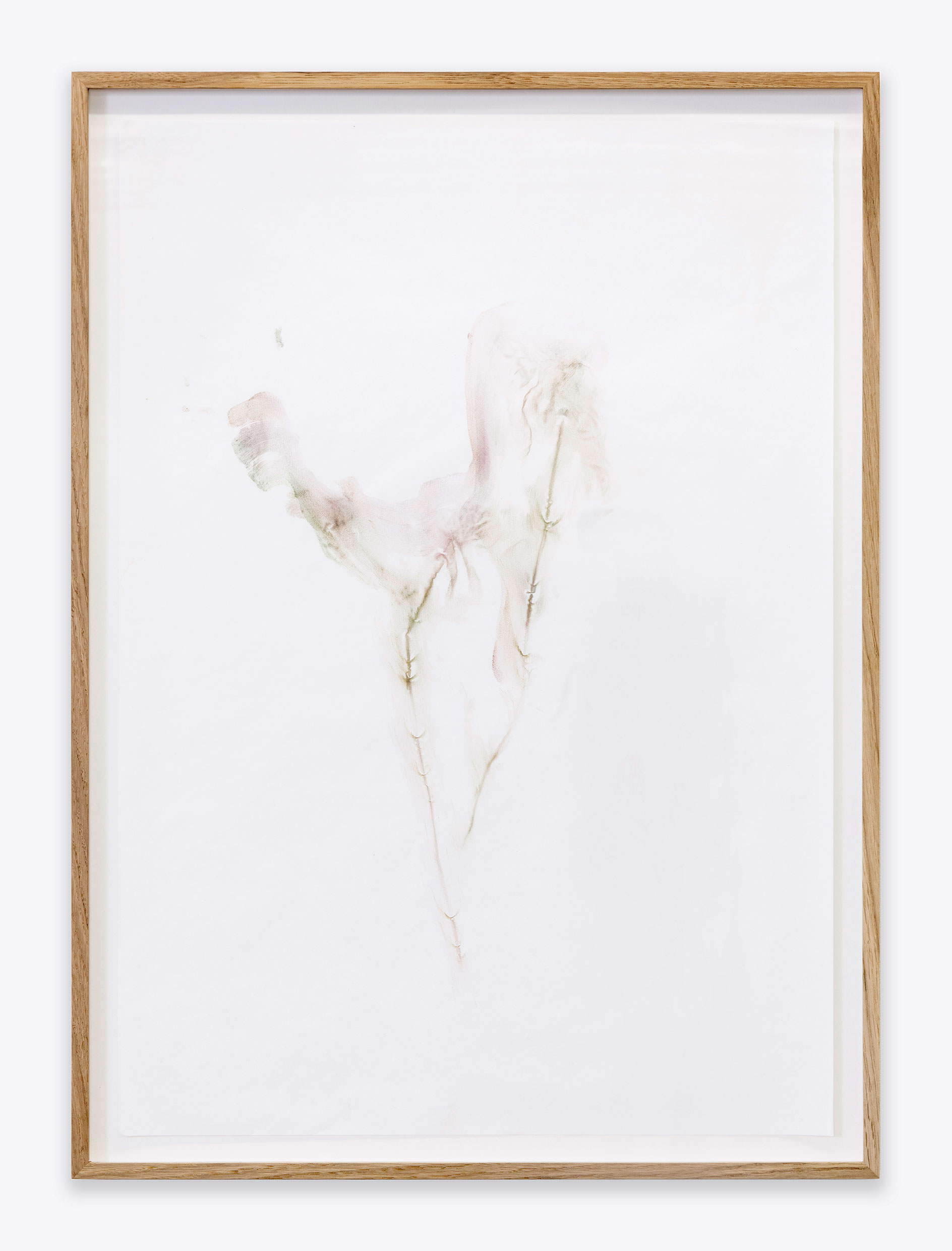
Randi Nygård 2018
Frottage, pastel on paper
64,5 x 47 cm

Randi Nygård 2018
Frottage, pastel on paper
64,5 x 47 cm
Photo: Christian Tunge





















Randi Nygård 2020.
Installation
Sculpture
Mirrors, photo, wood
158 * 62 * 30,6 cm
Table is made by Hans Jacob Normann
Randi Nygård 2020. Installation.
Bodies are sensing, expressing and forming the world / Kroppar sansar, uttrykker og formar verda
Sculpture
Mirrors, photo, wood
158 * 62 * 30,6 cm
Table is made by Hans Jacob Normann
Language / Språk
HD-video (on the small screen), 00:57 min
Gestures, movements, postures, tone and beating of wings / Gestar, rørsler, haldningar, tonefall og vingesus.
HD-video (on the big screen), 02:11 min
Randi Nygård 2018
Collage, magazines 47 x 35 x 15,5 cm
Photo: the artist
Randi Nygård 2018
Collage, magazines, 47 x 35 x 15,5 cm and 47 x 36,5 x 12 cm
Photo: Uli Holz
According to the dictionary, costume means dress and geography the study of the surface of the earth and its conditions. In Germanic languages, the word for dress is related to how much one can carry.
Randi Nygård 2019
Mirrors, photo, avocado stone, water, glas, wood 33 x 35 x 16 cm
Photo: Uli Holz
Randi Nygård 2019
Detail
Photo: Uli Holz
Randi Nygård 2019
Mirrors, photo, plant, wood, 42 x 23 x 27 cm
Foto: Uli Holz.
Randi Nygård 2019
Mirrors, photo, plant, wood, 42 x 23 x 27 cm
Foto: Uli Holz.
Randi Nygård 2019
Mirrors, photo, wood
22 x 38 x 6 cm
Photo: Uli Holz
Randi Nygård 2019
Installation, mirrors, birds, photo, wood and cotton, 120 x 72 x 36,5 cm.
Photo: Christian Tunge.
In the work Sikt, sjikt, dikt (bomull, skyer, fugl, sjøsprøyt) (Sight, layer, poem (cotton, clouds, bird, ocean spray)) I have been inspired by how clouds are formed, cotton is grown and how birds can live gliding in the sky for months without landing. The birds eat different living organisms that float around in the air, some of which live their entire lives inside clouds. These organisms also contribute to the formation of clouds, clouds cannot be formed without small particles that water vapour can attach to. Where there is a lot of plankton in the ocean, a lot of clouds are formed. Where cotton is grown, the ocean is often polluted because of the chemicals sprayed on the cotton and transported into the ocean with water from the fields. The areas dry up and the fish die.
Randi Nygård 2019
Installation, mirrors, birds, photo, wood and cotton, 120 x 72 x 36,5 cm.
Photo: Uli Holz
In German, the words for face, history and poetry resemble each other: Gesicht, Geschichte, Gedicht. If one removes the prefix ‘ge-‘, one is left with sicht, schichte, dicht, in Norwegian: sikt (sight), sjikt (layer), and tett (dense). The word poem (Gedicht) relates to densification. The German philosopher Husserl wrote that the moment we human beings perceive is such a densification of impressions. It lasts long enough for things to seem interlinked and short enough for us to connect to what is happening in front of us. We see movements as continuous and not divided, even if we blink our eyes. One assumes that animals can perceive moments as both faster and slower than us.
Randi Nygård 2019
Installation, mirrors, birds, photo, wood and cotton, 120 x 72 x 36,5 cm.
Photo: Uli Holz
Randi Nygård 2013/ 2017
Mirrors, digital prints, steel 130 x 50 x 50 cm
Photo: Christian Tunge
The poetical can often not be rationally described and can only be experienced in meeting, in a densification. Is the way we perceive time fundamentally poetic? Some physicists are calculating whether time is something that comes into existence between things, and not a fundamental constant structure.
Randi Nygård 2013/2017
Mirrors, digital prints, steel 130 x 50 x 50 cm
Randi Nygård 2018
Frottage, pastel on paper
64,5 x 47 cm
Photo: Christian Tunge
Randi Nygård 2018
Frottage, pastel on paper
64,5 x 47 cm
Randi Nygård 2018
Frottage, pastel on paper
64,5 x 47 cm
Photo: Christian Tunge